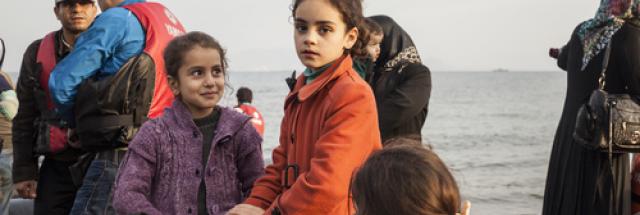Only a ‘better idea’ can cure the symptoms of extremism
 ‘Extremism’ is on everyone’s lips and every newspaper’s front page. It is viewed by many as public enemy number one. The rise of ‘religious’ terrorism has provoked new and sometimes no less extremist responses from those who feel threatened. Moderate majorities are being labelled as ‘extremists’ simply because they share the religion of violent minorities. Division and polarization are growing by the hour and threatening a new global chaos.
‘Extremism’ is on everyone’s lips and every newspaper’s front page. It is viewed by many as public enemy number one. The rise of ‘religious’ terrorism has provoked new and sometimes no less extremist responses from those who feel threatened. Moderate majorities are being labelled as ‘extremists’ simply because they share the religion of violent minorities. Division and polarization are growing by the hour and threatening a new global chaos.
But what exactly is ‘extremism’? For most of us, extremists are those who hold beliefs which we consider unreasonable and unacceptable, i.e. different from ours. While it is true that extremists are generally devotees of ideologies most of us would dismiss, not so many of us take the time and trouble to understand what makes people hold ‘unreasonable’ views. Nor to take an honest look at our own.
It is easier, and more comfortable, to dismiss extremist views and if necessary to use force to eliminate those who hold them. This may sometimes be necessary, but it is no long-term answer.
Queen Rania of Jordan, referring to the fight against ISIS, said 'this can’t just be won on the battlefield. At the heart of this war is ideology, and you cannot kill an ideology with a bullet. You can only kill it with a better idea.'
So what is the nature of that 'better idea'? The underlying struggle in human history, today as always, is the battle between competing ideas of the nature of human beings and opposed visions of what an ideal world should look like.
On the one side are ideologies affirming the supreme value of only one set of human beings – those of a particular race, or political or religious adherence. Those outside this definition are the enemy, to be converted or removed.
On the other side lies a worldview that affirms all human beings as infinitely and equally valuable, whatever their race, religion or beliefs. In this view, everyone has a unique part to play in building a just world order.
Western liberal societies see themselves as pioneers of this second, noble idea. But they rarely have the honesty to recognise, let alone acknowledge, that their reality does not match their ideal.
While there is much to be proud of in the West, and much that must rightfully be defended, we need plenty of humility. Idealising ‘fraternity’, we have built (and maintain) our wealth on the exploitation of others, including people in our own societies. Idealising ‘equality’, we have embraced a global economic system where the world’s richest 62 people are as wealthy as half of the world's population. Idealising ‘freedom’, we have presided over a loss of moral purpose and spiritual values which leave millions without real meaning in their lives.
The root causes of extremism are many. Poverty, inequality, injustice, greed, power-lust, humiliation and much more play their part in creating the conditions where hate and violence can flourish. All need to be addressed.
But a ‘better idea’ also needs to be articulated and above all lived out in the daily lives and actions of millions of people. That ‘better idea’ is not the property of the West, nor any other group. It emerges from the wisdom of the human journey, the traditions that have sustained us. That ‘better idea’ is an equal challenge to every single one of us to embrace values which call forth changes of attitude and lifestyle in us all.
All extremism is symptomatic of deeper problems and cannot be answered by force nor by moderation and tolerance. A passionate inclusivity is needed which affirms the essential dignity and contribution of every single person, of whatever race, religion or background while also demanding justice. A rising dynamic of extremism can only be countered by a rising dynamic of compassion, integrity and service.
The endemic finger-pointing which blames others while excusing one’s own failings must give way to a new paradigm where each takes responsibility, beginning close to home. The line between good and evil runs through the hearts of each one of us. Let us each start there.

